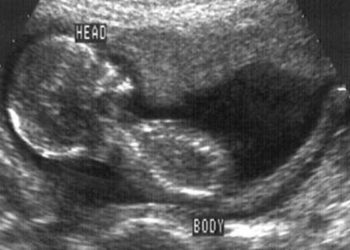Trans, not saturated, fat consumption linked to increased mortality
1. Increased consumption of trans fats was associated with an increased risk in all-cause mortality, total coronary heart disease (CHD), and CHD mortality.
2. In contrast, saturated fats could not be reliably associated with any increase in all-cause mortality, CHD, cardiovascular disease (CVD), ischemic stroke, or type II diabetes.
Evidence Rating Level: 1 (Excellent)
Study Rundown: Many lines of research have suggested that consumption of different types of fats confer different risk profiles for cardiovascular and metabolic disease. In particular, saturated and trans fat are two broad categories of consumed fats that have been associated with adverse pre-clinical and clinical outcomes. In this systematic review and meta-analysis of cohort studies, the authors used the World Health Organization (WHO) associated guideline development process, based on the Cochrane Collaboration approach, to assess the risk ratios between the highest and lowest intake groups for trans and saturated fats. An increased risk for all-cause mortality, coronary heart disease (CHD), and CHD mortality was found for those consuming the highest amount of trans fat, while no association was significant for ischemic stroke and type II diabetes. Though studies were sparse, the group also found that trans fats produced via industrial processes were associated with increased risk of CHD while ruminant trans fat, produced in animals via bacterial enzymes, did not show an increased risk and actually showed a reduction in risk associated with type II diabetes. In contrast to trans fat, there was no association between increased risk of all-cause mortality, CHD, CHD mortality, cardiovascular disease (CVD) mortality, ischemic stroke, or type II diabetes in those who consumed the highest amounts of saturated fats.
The findings of this study align with previous meta-analyses and large cohort studies showing increased risks associated with trans fat consumption, though there remains some inconsistency about the risks of increased saturated fat consumption. While informative, this study highlights the need for improved classification and study design to better assess the effects of different types of fats on overall health. Broad classifications of “trans” vs “saturated” fats may fail to resolve real associated risks or benefits of specific lipid configurations within a particular broad category. In addition, it was unclear whether the highest and lowest consumption represented an actual amount of a fat or the relative percentage of a particular fat in a diet. These considerations may reduce some of the uncertainty in these findings. All in all, while this study supplement the literature associating trans fat with higher mortality, there is little new information revealed regarding the association.
Click to read the study in the BMJ
Relevant Reading: Association of dietary, circulating, and supplement fatty acids with coronary risk
In-Depth [systematic review and meta-analysis]: 41 primary reports of saturated fat and 20 primary reports of trans fat associations with mortality and disease were included from a broad search of study databases. Data was gathered and analyzed using the WHO’s guideline development process, which was based on a Cochrane Collaboration approach, and confidence in the evidence was assessed using the Grading of Recommendations Assessment, Development, and Evaluation (GRADE) methodology. The extreme highest and lowest groups of fat consumers were assessed for each clinical endpoint. Saturated fats did not confer a significant change in relative risk for all cause mortality (0.99; CI95 0.91 to 1.09), CHD mortality (1.15; CI95 0.97 to 1.36), CVD mortality (0.97; CI95 0.84 to 1.12), CHD total (1.06; CI95 0.95 to 1.17), ischemic stroke (1.02; CI95 0.90 to 1.15), or type II diabetes (0.95; CI95 0.88 to 1.03). In contrast, trans fat conferred an increased relative risk of all cause mortality (1.34; CI95 1.16 to 1.56), CHD mortality (1.28; 1.09 to 1.50), and CHD total (1.21; CI95 1.10 to 1.33) but not for ischemic stroke (1.07; CI95 0.88 to 1.28) or type II diabetes (1.10; CI95 0.95 to 1.27). Industrial trans fat consumption was significantly associated with an increased risk of CHD (1.42; CI95 1.05 to 1.92) but was not significantly associated with all-cause mortality or CHD mortality. Ruminant trans fats did not increase the risk of any of the studied endpoints and conferred a decreased relative risk for type II diabetes (0.58; CI95 0.46 to 0.74).
Image: PD
©2015 2 Minute Medicine, Inc. All rights reserved. No works may be reproduced without expressed written consent from 2 Minute Medicine, Inc. Inquire about licensing here. No article should be construed as medical advice and is not intended as such by the authors or by 2 Minute Medicine, Inc.









